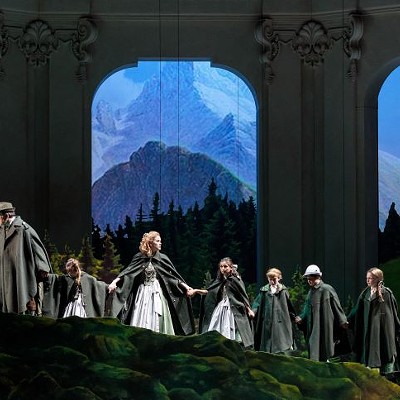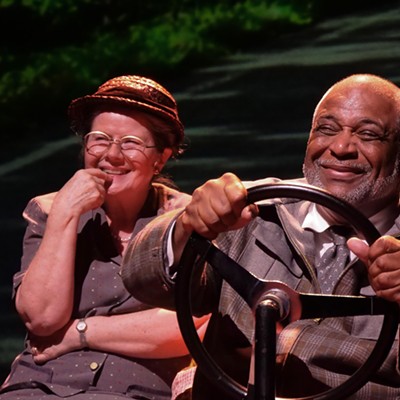Support Us
Houston's independent source of
local news and culture
account
- Welcome,
Insider - Login
- My Account
- My Newsletters
- Contribute
- Contact Us
- Sign out

Screencap from Revolution 60
[
{
"name": "Related Stories / Support Us Combo",
"component": "11591218",
"insertPoint": "4",
"requiredCountToDisplay": "4"
},{
"name": "Air - Billboard - Inline Content",
"component": "11591214",
"insertPoint": "2/3",
"requiredCountToDisplay": "7"
},{
"name": "R1 - Beta - Mobile Only",
"component": "12287027",
"insertPoint": "8",
"requiredCountToDisplay": "8"
},{
"name": "Air - MediumRectangle - Inline Content - Mobile Display Size 2",
"component": "11591215",
"insertPoint": "12",
"requiredCountToDisplay": "12"
},{
"name": "Air - MediumRectangle - Inline Content - Mobile Display Size 2",
"component": "11591215",
"insertPoint": "4th",
"startingPoint": "16",
"requiredCountToDisplay": "12"
}
,{
"name": "RevContent - In Article",
"component": "12527128",
"insertPoint": "3/5",
"requiredCountToDisplay": "5"
}
]
Many Triple-A videos games rival major Hollywood blockbusters in terms of storytelling, scope and public impact. That’s why it’s weird that one of the staples of the blockbuster is still largely missing when it comes to gaming: novelizations.
To be clear, I’m talking about straight novelizations of the in-game story, not spin-off novels. Gaming has produced some excellent ancillary work. I still say Jeff Rovin’s Mortal Kombat crafted a much tighter mythology than the games themselves did, and John Shirley’s Bioshock: Rapture is definitely worth the read. Gaming is well-represented in the concept of expanded literary universe.
Novelizations as we think of them for movies, though, are pretty rare. Steve Perry had a nice Resident Evil series that alternated between original books and adaptations of the Playstation 1-era games. Dafydd ab Hugh and Brad Linaweaver's Knee-Deep in the Dead is more or less a perfect adaptation of the first Doom game, though the series diverges wildly from the source material from the second book on. Ico has a solid novelization as does the classic NES title Ninja Gaiden of all things.
There are a handful more, but it’s nothing like the automatic “book based on the movie” that populate shelves. The second Kingsman, Wonder Woman, and the upcoming Predator reboot all have books for sale. Some novelizations, like Alan Dean Foster’s Alien, have become classics in their own right.
“I could probably turn it around in a month,” says Briana Wu, game developer and founder of Giant Spacekat when asked her how hard it would be to craft a game novelization in-house. “So much of working on a video game involves deeper discussions about plot behind the scenes. Example: I have most of Revolution 62 written. That was just the process of finishing up Revolution 60.”
Nonetheless, games are a harder medium than film scripts to adapt. In the modern era a lot of games change their stories dramatically based on player choice, meaning than any book’s telling of the tale would cement a supposedly preferred narrative in the way that a movie adaptation wouldn’t.
“Novels are (usually) a lot more linear than games,” says Rhianna Pratchett (Tomb Raider, Mirror’s Edge). “Plus with games, you’re experiencing the story through a whole host of ways - level design, environmental narrative, gameplay mechanics etc. You are an active participant in the story. You ARE the story. In books it’s more passive, although I’d suggest there is a slight interactive element between author and reader as the author tries to convey visuals/mood though text and the reader imagines the results.”
Novelizations do offer something extra, though, and that’s the chance to incorporate ideas that might have been cut from the final production. I remember so many people losing their minds over the Han/Jabba scene in the special edition of Star Wars Episode IV: A New Hope. To someone who primarily knew that story through the lens of the Alan Dean Foster (credited as George Lucas) book of the movie, that scene had always been there for me. Stephen Molstad’s Independence Day has something similar, where the finale involves a nuke strapped to Russell Casse’s cropduster plane as opposed to him in a fighter jet, as it was in the original script.
Frankly, there are games that cry out for that kind of flexibility in their storytelling that wouldn’t significantly be beholden to player choice. Take the 2014 Thief, which has a rich, luscious world but a terribly fractured plot that is hard to follow even after multiple playthroughs thanks to a reportedly difficult development process. Thief is a game that a novelization of would allow players to fill in the gaps of material that didn’t work in playtesting but were clearly there in the development.
Or Bioshock Infinite. One of the biggest complaints about the game is that it awkwardly balances its grandiose plot with first-person shooter action that doesn’t allow a lot of actual narrative. A novelization can remove a lot of the gun battles in favor of more situation-appropriate action that would have been incompatible within the game’s system.
Gaming can be an expensive medium in terms of resources. Most of them require tens of hours of play, and if you’re like me and live in a house with one TV that means monopolizing a family asset for yourself. Sometimes I wish that I could curl up with various Final Fantasies in book form rather than invest all the time it would take to appreciate the stories through play.
It’s not like there isn’t a great precedent. Magic: The Gathering complements its various deck cycles with an excellent series of novels to tie the story together. They combine the flavor texts and the broad themes of the cards in a cohesive story that is great pulpy fun. If something as on-linear as a game of Magic can get a novelization, surely it can be more common for video games to do so.
"You have to do so much world buildings that there is always plenty left to be explored in other creative forms,” says Pratchett.
KEEP THE HOUSTON PRESS FREE...
Since we started the Houston Press, it has been defined as the free, independent voice of Houston, and we'd like to keep it that way. With local media under siege, it's more important than ever for us to rally support behind funding our local journalism. You can help by participating in our "I Support" program, allowing us to keep offering readers access to our incisive coverage of local news, food and culture with no paywalls.
Jef Rouner (not cis, he/him) is a contributing writer who covers politics, pop culture, social justice, video games, and online behavior. He is often a professional annoyance to the ignorant and hurtful.
Contact:
Jef Rouner
Trending Arts & Culture
- Bring a Friend With You to See A.D. Players' Heartwarming Production of Driving Miss Daisy.
- Houston Grand Opera's The Sound of Music Begins This Weekend. Yodelayheehoo!
- The 10 Best And Most Controversial Hustler Magazine Covers Ever (NSFW)
-
Sponsored Content From: [%sponsoredBy%]
[%title%]

Don't Miss Out
SIGN UP for the latest
arts & culture
news, free stuff and more!
Become a member to support the independent voice of Houston
and help keep the future of the Houston Press FREE
Use of this website constitutes acceptance of our
terms of use,
our cookies policy, and our
privacy policy
The Houston Press may earn a portion of sales from products & services purchased through links on our site from our
affiliate partners.
©2024
Houston Press, LP. All rights reserved.





